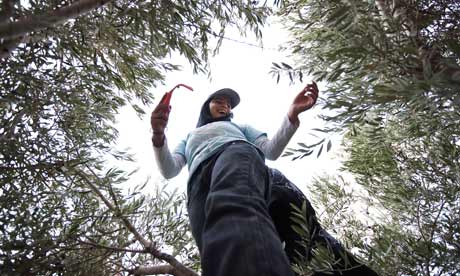A question for the fair trade critics: How much is human dignity worth?
![]()
The Institute of Economic Affairs has attacked the fair trade movement, denouncing it as ‘froth’. But what’s so wrong about tackling global trade inequities from the bottom up?

Free market thinktanks usually launch their ideological attacks on “fair trade” in the early spring. That’s when the growing social movement, which tries to apply a little common sense and humanity to the deeply unfair global trading system, holds its annual jamboree in Britain and invariably reports that it has grown spectacularly, and that it has not only helped more poor farmers by giving them a premium price for their products but has also persuaded yet more western consumers to shop ethically. So, the grim forces of reason and neoliberal economic efficiency must be worried. It’s only November and the Institute of Economic Affairs has already launched a vicious, 130-page report detailing how fair trade is “costly, opaque and substantially unproven”. According to the IEA, it distorts markets, misleads consumers, holds back social development, celebrates backward forms of production, relies on inefficient cooperatives and has high administration costs. Oh, and it is neocolonialistic and paternalistic, not a strategy for long-term development and its claims are exaggerated. Nothing new there. Every self-respecting libertarian and free-market ideologue has to have a crack at fair trade. It’s like a rite of passage. You can’t appear at the Institute of Ideas’ summer party, write for Spiked or go to a Cato Institute bash until you have written a withering paper on how it does not work. Cato, Heritage, Reason, the Adam Smith Institute, and others seem excessively twitchy about how a minute movement is in the process of establishing a moral economy. So the first question to ask is: who wrote this IEA paper? Ah. It’s Sushil Mohan of Strathclyde University, who spent years working as a trade adviser to the global tea and coffee industries. And who commissioned it? Possibly it was the IEA’s editorial and programme director Philip Booth, who – as my colleague Simon Bowers points out in his report today – is a City University academic and prominent Christian who has objected strongly to church literature pushing fair trade products. Paradoxically, the radical left doesn’t like fair trade either. While the right hates the way it distorts the natural forces of the market, the radical left argues that it a futile capitalist response, which merely bolsters a deeply unfair and unbalanced system. But as someone who has visted fair trade projects in both African and Latin American countries, I can attest that it’s highly popular in the co-operatives it works with, and it makes a real difference to small farmers. The reality is that it redresses the balance, and acts as a small, bottom-up corrective force to a deeply unfair trade system. While others fight on the international stage to improve the conditions of developing-world farmers and small producers, fair trade offers consumers an ethical response. No one pretends that the formula is perfect or it does not have shortcomings. There are many ways to reduce poverty and this one helps only 7 million people out of more than a billion. So what is the liberatarians’ problem? Is it that fair trade celebrates the small and the collective, or that at its root, it is about justice and dignity? Perhaps they feel threatened? Yes, it makes people feel a bit better and a bit more human. But that is something these free-marketeers do not seem to understand.
Related Articles
Vendedores de causas perdidas
![]()
Foro Social Mundial de Túnez Santiago Alba Rico Cuarto Poder El Foro Social Mundial 2013 se cerró el sábado pasado
World population by country: UN guesses the shape of the world by 2100
![]()
What is the world’s population according to the latest UN estimates? See when it will hit 10 billion – and
Gaddafi family deaths reinforce doubts about Nato’s UN mandate
![]()
Regime claims attack that killed son and three grandchildren was aimed at Libya’s leader, as allies accused of overstepping UN


